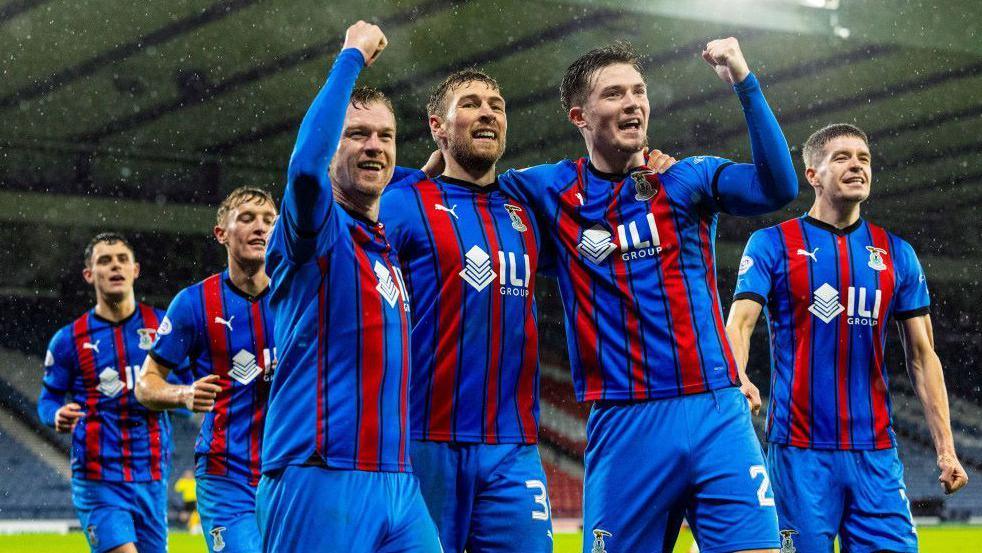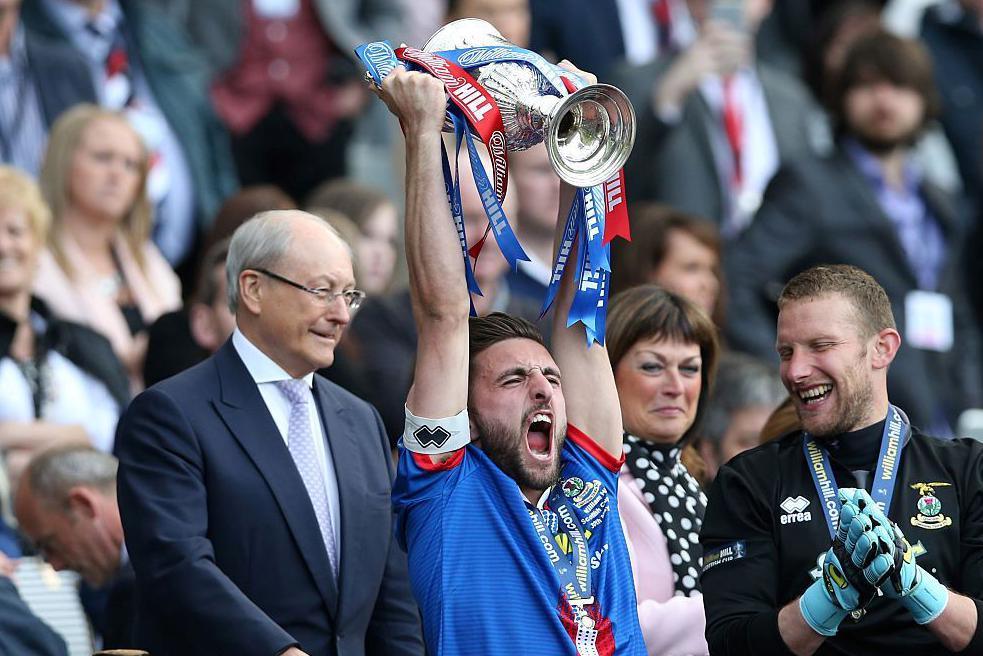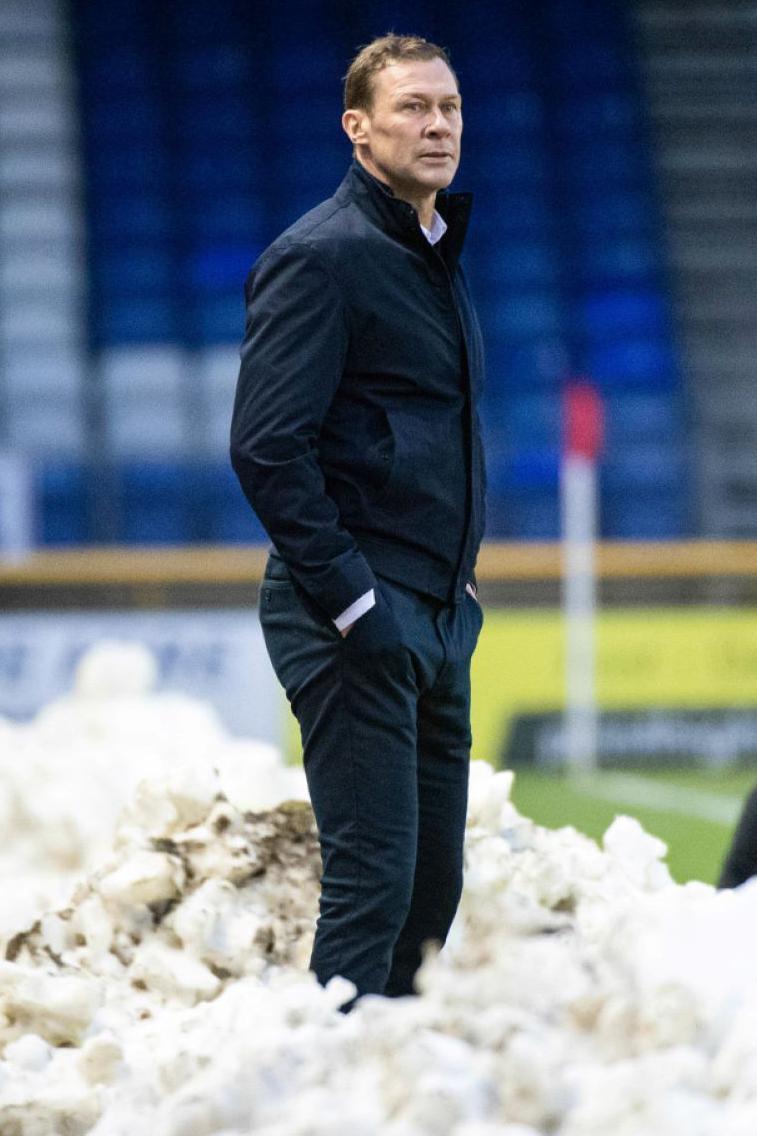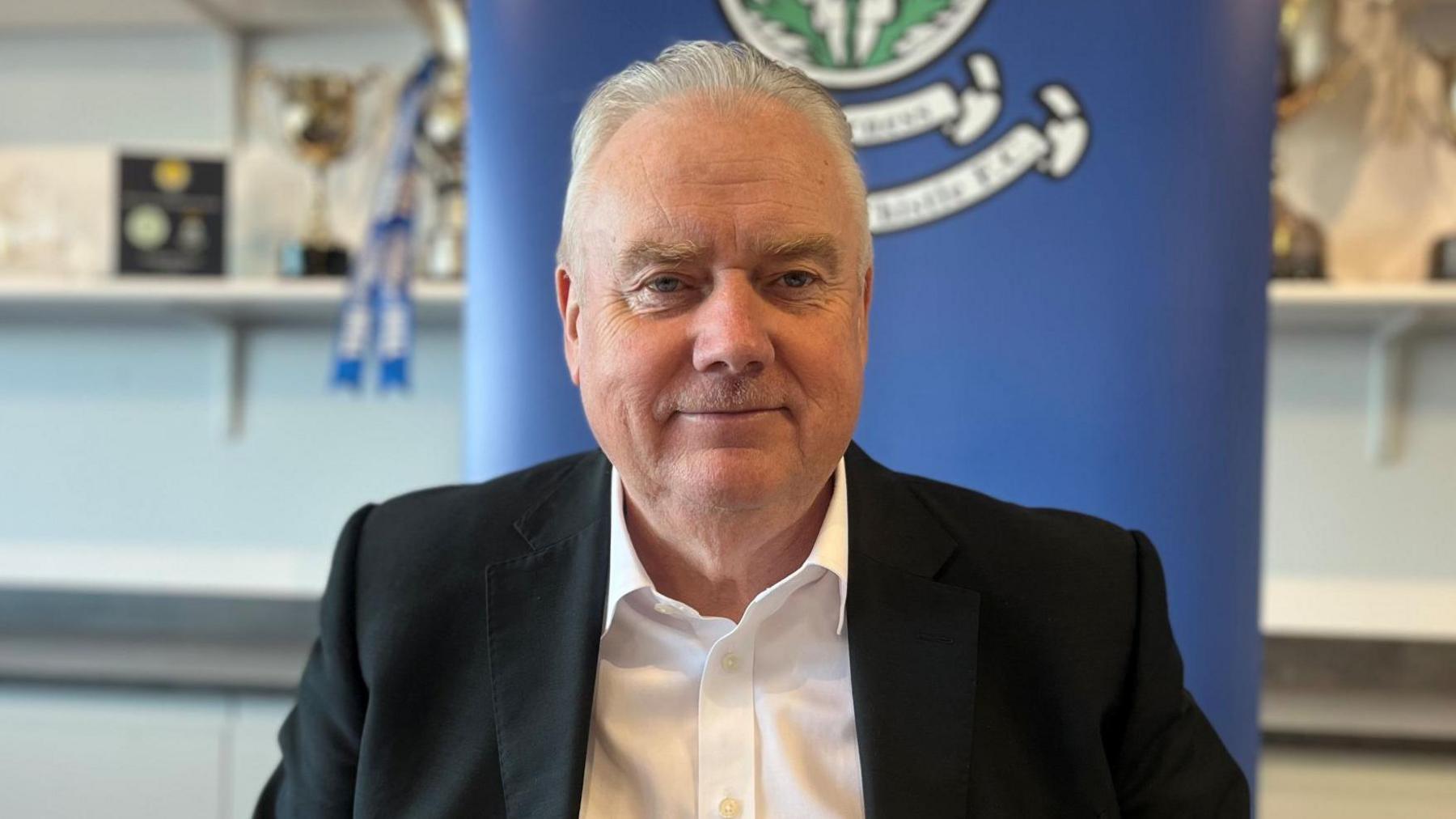Rise and fall and rise again of Inverness Caley Jags

Inverness has had its fair share of ups and downs over the last three decades
- Published
Inverness Caledonian Thistle (ICT) has faced a fight for survival more than 30 years after its controversial formation.
The Highland club was placed in administration in October after running up large debts - and administrators warned the future of the club was at "significant risk".
After a rollercoaster few months ICT has now exited administration - and secured a new owner.
The upheaval all feels a long way from glory days "Super Caley" enjoyed in the past, with teams led by managers including Hearts legend John Robertson, former Celtic and Hibs defender John Hughes and England captain Terry Butcher.
New name for Inverness Caledonian Thistle's stadium
- Published7 August
Three buyers interested in Inverness Caley Thistle
- Published24 October 2024
Inverness Caley Thistle goes into administration
- Published22 October 2024
For ICT it all began in 1993 when the Scottish Football League decided to expand from 38 to 40 teams for season 1994-95.
It was suggested Inverness's three Highland League clubs - Thistle, Caledonian and Clachnacudden - join forces and make a bid for one of the two slots.
Clach dropped out of the project but Caley and Thistle, who were both formed in 1885, pushed on towards a merger.
There were fans who were vehemently opposed to amalgamation, and it took a narrow 54-46% vote to finally confirm the formation of Inverness Caledonian Thistle.
Some supporters were so scunnered by the decision they gave up football and started following rugby instead.
Why were ICT nicknamed Super Caley?
ICT, a part-time club, started playing its first games in Division 3 in 1994.
In the 1996-97 season, Inverness secured promotion to Division 2 and in July 1997 manager Steve Paterson, who would later manage Aberdeen, and his coaching team were given full-time roles.
Caley Jags continued their climb through the leagues with promotion to Division 1 in 1999.
The following year the Highlanders were behind one of the most famous Scottish football newspaper headlines, external.
After beating Celtic 3-1 in a Scottish Cup third round match in February 2000, The Sun wrote: "Super Caley Go Ballistic, Celtic Are Atrocious".
In 2003-04, the then 10-year-old ICT won promotion to the Premier League.
Over the next 20 years there would be huge highs but also crushing lows.
When were the glory days?

Graeme Shinnie lifts the Scottish Cup in 2015
The club's "fairy tale" season came in 2014-15.
Under John Hughes, ICT finished third in the Premier League and secured Europa League qualification to win the Scottish Cup for the first time - with 10 men after having a player sent off in the second half.
The day after the final at Hampden in Glasgow, the team took the trophy on a tour of Inverness in an open-topped bus.
The club's strong community spirit was clearly on show that day.
Fans who had gathered at the stadium to see the bus start its journey were invited to wait inside the ground, and even got the chance to meet some of the cup-winning heroes.
Hundreds of people lined parts of the bus's route from the stadium to the Northern Meeting Park where 5,000 fans celebrated with the team.
In its first 25 years, ICT also won three league championship trophies and two Challenge Cups.
Why is ICT in difficulty?
Inverness were relegated to the Championship on the last day of the 2016-17 season, a win over Motherwell not being enough to save it.
ICT under manager Billy Dodds did reach the Scottish Cup final in 2023, but lost 3-1 to Celtic.
Dodds was later sacked and former Rangers and Everton player Duncan Ferguson was appointed manager.
But at the end of last season, a run of poor league results and defeat in a play-off against Hamilton saw ICT drop to League One.
Angry fans took to the pitch in protest.

Manager Duncan Ferguson worked for free in his last days at Caley Jags
Rumours of significant financial problems were growing louder, and supporters feared the club would go bust.
They were also dismayed by plans to move the club's training base 136 miles away to Kelty in Fife.
Bosses said the move would allow it to recruit players unwilling to relocate from central Scotland to the Highlands.
The plan was abandoned following a backlash.
Over the months that followed the state of ICT's finances has become apparent, and there has been boardroom drama - with chief executive Scott Gardiner resigning and former chairman Alan Savage returning to prop up the club with funding.
Losses ran to £1.2m last season and a similar loss is forecast for this term.
Desperate measures were taken to raise revenue.
An online appeal was launched and Duncan Ferguson took a pay cut and then worked for free.
Inverness Caley Jags
£500,000How much the club sold star Ryan Christie, son of ICT legend Charlie Christie, for to Celtic in 2015
7,753Record attendance for ICT's stadium set in 2008 for a game against Rangers
7,820Tickets were sold in 2021 for a game against Hearts, breaking the 2008 record
![In numbers:. Inverness Caley Jags [ £500,000 How much the club sold star Ryan Christie, son of ICT legend Charlie Christie, for to Celtic in 2015 ] [ 7,753 Record attendance for ICT's stadium set in 2008 for a game against Rangers ],[ 7,820 Tickets were sold in 2021 for a game against Hearts, breaking the 2008 record ], Source: Source: Inverness Courier/BBC Sport Scotland, Image: Ryan Christie pictured when he played for ICT](https://ichef.bbci.co.uk/news/920/idt2/idt2/9520a46b-1406-4843-9995-f68a26302383/image/460)
A deadline to find a buyer, or raise enough money to stave off administration, came and went in mid-October.
Administration has been described as a way of giving the club some breathing space to try and sort out its debts and secure its future.
But it has come at a cost - the club was deducted 15 points by the SPFL as a punishment and in October ICT was at the bottom of the league on minus three points.
Duncan Ferguson was sacked later that month.
Led by head coach Scott Kellacher, Inverness fought its way to seventh and the chance of playing League One football again next season.
What has happened now?

Alan Savage has taken full control of ICT
In March, administrators BDO said a deadline to find a new owner had passed leaving the club facing the prospect of potential liquidation.
The company said potential buyers had raised a number of concerns, including how loans of £3.5m would be paid off and the need to reach deals with other shareholders.
But over following months, deals were reached allowing ICT to exit administration - and for businessman Alan Savage, a former Caley Jags chairman, to take full control of the club.
He told BBC Scotland News: "Inverness has been good to me personally and for my business, and I think inevitably people like me get involved in football clubs because they think it's the right thing to do.
"In my case I felt I owed the city and the football club."